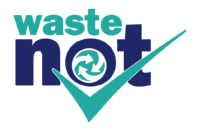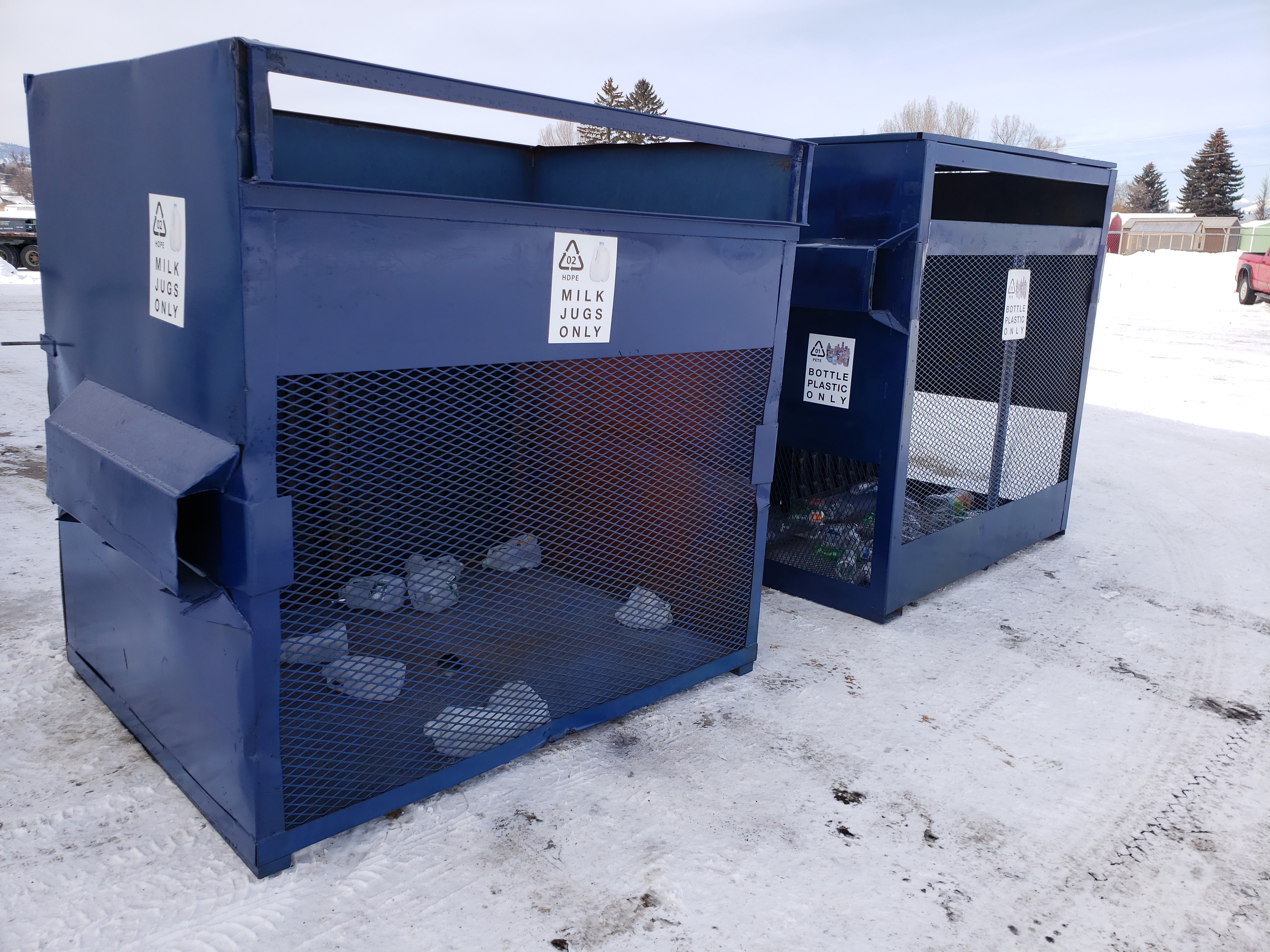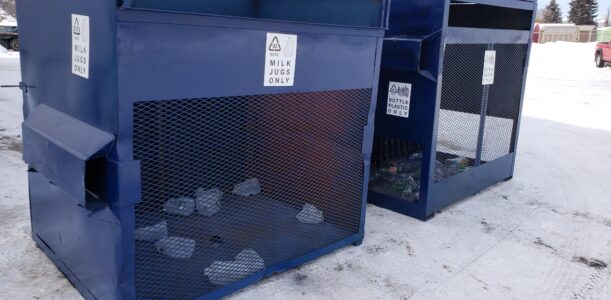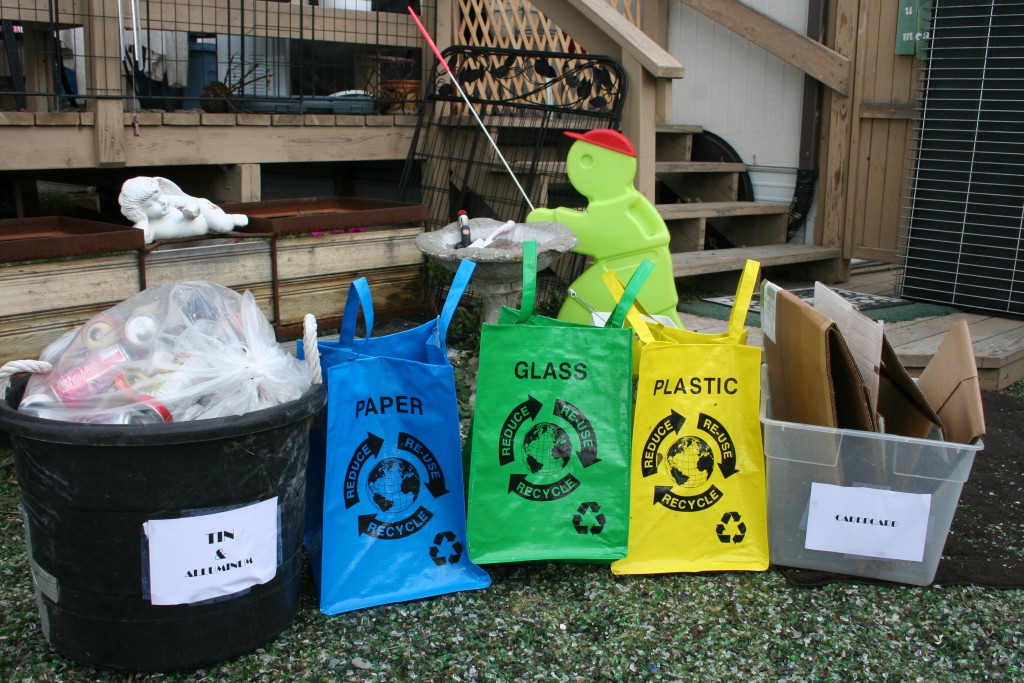Recycling conserves valuable natural resources by using them more than once. Recycling is limited in Montana because of our distance from recycling markets. By recycling the items we can, we slow down how fast we’re filling up our local landfill, saving money and land resources in our valley.
Click the items below to learn how and where to recycle them in the Flathead Valley.
Map of Public Drop-off Sites | Curbside Pickup
Please note: All recyclables should be clean with no food particles or oil. Please sort materials and only include approved items in the correct bin. Contamination can send entire recycle containers to the landfill.
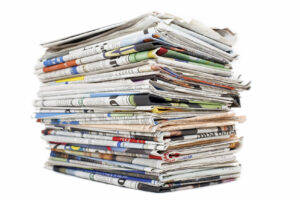 How to Sort
How to Sort
Include all types of paper, such as:
✔ Office paper, cardstock, manila file folders (staples and tape ok)
✔ Magazines and catalogs (glossy paper ok)
✔ Newspaper and inserts
✔ Junk mail (windowed enveloped ok)
✔ Phone books
✔ Notebook paper
✔ Paperboard (cereal or soda boxes, etc.)
✔ Brown paper bags
✔ Egg cartons
Recycle at:
All recycle locations.
♻ Did you know? Paper makes up close to a third of what we throw away nationwide. Recycling paper saves 60-70% of the energy used for virgin paper while making our natural resources go farther. Paper is easy to recycle because it is made from wood, and it separates back into fibers when soaked in water. Paper can be recycled seven times and thus reduces the need to harvest timber for new paper.
✔ Corrugated Cardboard ONLY. Please flatted boxes and remove all packing material. NO cereal box/paperboard. NO waxed boxes or pizza boxes.
Please note:
The difference in paperboard and cardboard cartons lies in how they are constructed. Paperboard is thicker than average paper, but it is still just one layer. Cardboard is three layers of heavy paper, two flat with a wavy one in the middle.
Recycle at:
All recycle locations.
♻ Did you know? Recycling cardboard has similar benefits as recycling paper, but the fibers in cardboard are longer and stronger than paper so they can be recycled many times.
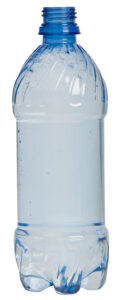 How to Sort
How to Sort
Separate:
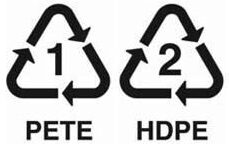
✔ #1 Clear Bottles Only
✘ NO clamshells even if they’re a #1!
✔ #2 Translucent Bottles Only (like milk jugs)
✘ NO solid color containers even if they’re a #2!
✘ NO plastic bags or film. Please recycle those separately at grocery stores.
Recycle at:
Valley Recycling (1410 Hwy 2 West, Kalispell)
City of Whitefish residents only may recycle #1 and #2 plastics at the City Central Recycling site. Click here for more info.
♻ Did you know? The number inside of the chasing arrows triangle on plastics is the resin identification code, identifying which kind of plastic that container is made from. #1 clear bottles and #2 translucent bottles are the most common and valuable to recycle. Many types of plastic cannot be recycled.
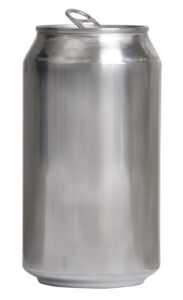 How to Sort
How to Sort
ALUMINUM
✔ Soda and beer cans. Magnets will not stick to aluminum.
✔ Cans only. No need to flatten. Must be clean.
Recycle at: All recycle locations EXCEPT unmanned Kalispell sites (Albertson's & KME).
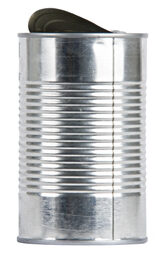 TIN/STEEL
TIN/STEEL
✔ Soup and vegetable cans. Magnets will stick to tin/steel.
✔ No need to remove labels or flatten. Must be clean and rust-free.
Recycle at: Pacific Steel & Recycling, City of Whitefish site
♻ Did you know? Metals are infinitely recyclable without loss in strength and quality. Aluminum can be recycled using less than five percent of the energy it took to make the original product.
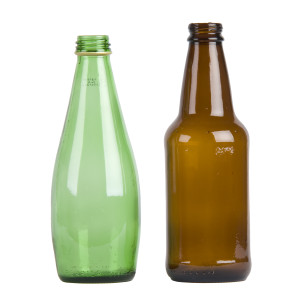 The Flathead Recon Glass Recycling facility is closed until further notice. Recon is based on the idea that recyclables should be processed locally for higher and better uses. Check their Facebook page for the next event.
The Flathead Recon Glass Recycling facility is closed until further notice. Recon is based on the idea that recyclables should be processed locally for higher and better uses. Check their Facebook page for the next event.
♻ Did you know? Glass is treated differently than other recyclables as it cannot be baled and is too costly to ship to nearby recycling centers. However, recycled glass is a virtually free building material that can be used in everything from roads to backfill to insulation. Many communities across the country are now successfully using glass crushers to create building and landscaping materials.
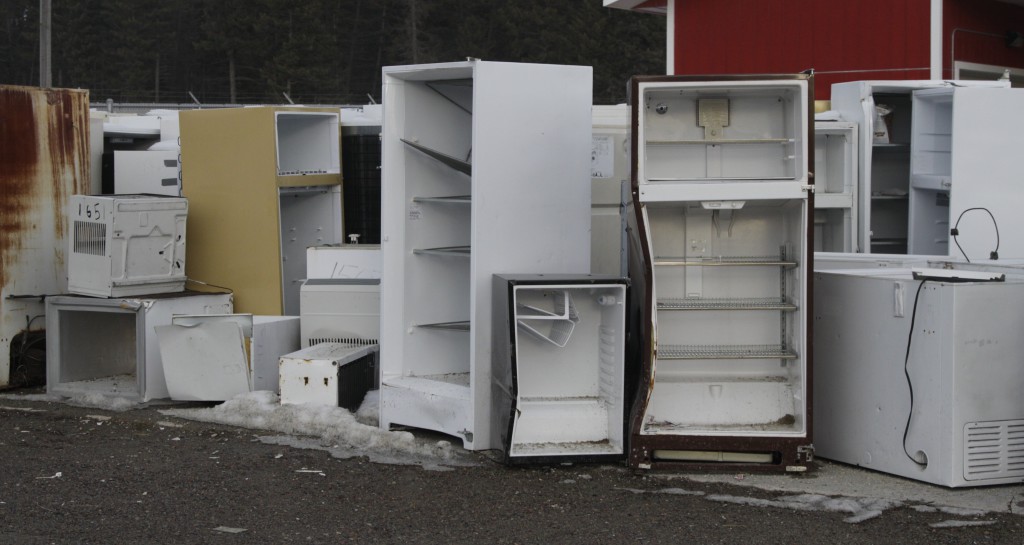 Major appliances include refrigerators, dishwashers, freezers, dryers, dehumidifiers, stoves/ranges, trash compactors, water heaters, air conditioners, furnaces, washing machines, heat pumps.
Major appliances include refrigerators, dishwashers, freezers, dryers, dehumidifiers, stoves/ranges, trash compactors, water heaters, air conditioners, furnaces, washing machines, heat pumps.
Appliances can be recycled at the following locations:
- Flathead County Landfill (758-5910) All types; County will remove Freon for free and recycle it. Doors must be removed from fridges and freezers.
- Pacific Steel & Recycling (755-7011) Only appliances without Freon. No fridges unless properly evacuated.
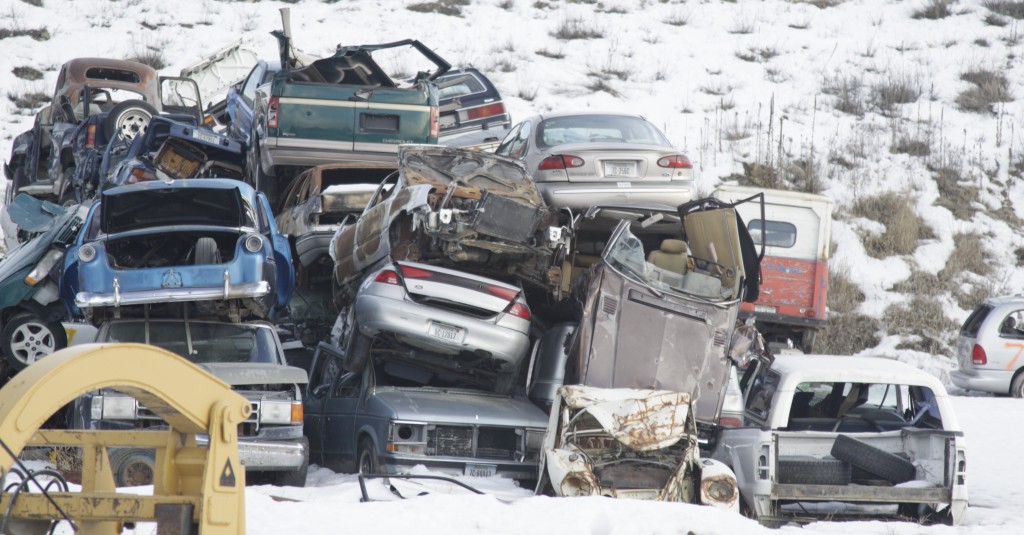 Junk Cars
Junk Cars
- Flathead County Landfill: 758-5910
- Pacific Steel and Recycling: 755-7011
When purchasing a new battery, ask if they will recycle your old one.
- Battery Systems/Standard Batteries: Kalispell, 752-0205
- Flathead County Landfill: 758-5910
- Pacific Steel and Recycling: 755-7011
- Batteries Plus Bulbs: Kalispell, 890-2150
- Flathead County Landfill: 758-5910 (call for fee)
- Enviro Tire: Pick-up service, 755-7716
Radiators
- Pacific Steel and Recycling: 755-7011
- Emerald Drain Oil Co.: Missoula, 406-543-7911, call for weekly pickup times for local businesses.
- Flathead County Landfill: 758-5910
- O’Reilly Auto Parts: Kalispell, 752-6123
- Emerald Drain Oil Co.: Missoula, (see above)
- Flathead County Landfill: 758-5910
New construction or remodel projects create a lot of waste that can usually be reused or repurposed instead of trashed.
- Habitat For Humanity ReStore: 2610 Hwy 93 South, Kalispell, 752-2905.
Accepts most building supplies in good condition for reuse or to re-sell; some latex paints; no blinds. Call ahead. - Flathead Recon: Columbia Falls, 250-2086
Flathead Recon provides deconstruction services, construction-site and property clean-up services, waste stream audits, and reclaimed building materials for sale. Will pick up construction waste for recycling at job sites. Call for info and pricing.
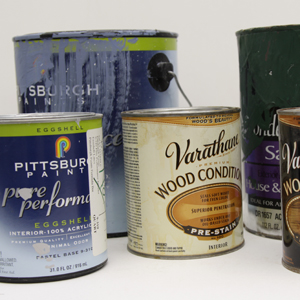 Paint
Paint
Remember: oil-based paint, latex paint, paint thinners, turpentine, mineral spirits and solvents should never be poured down a drain or storm sewer.
Paint can be recycled at the following locations:
Oil Based Paints
- Flathead County Landfill: 758-5910 (see Household Hazardous Waste guidelines.)
- Habitat For Humanity ReStore: only take latex paint that has not been frozen.
- To dispose of unusable paint, remove lid and air-dry leftover paint in can. Discard hardened paint with your household trash.
When clothing or other fabrics become too worn to be used again, recycle at:
- Flathead Industries
Mark bags for recycling and bring to downtown Kalispell location (40 E Idaho St). Holes and frays are fine. Fabrics cannot be wet, moldy, soiled, or smell of cigarettes.
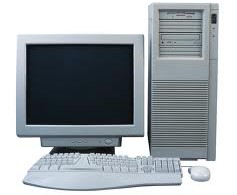 COMPUTERS & ELECTRONICS
COMPUTERS & ELECTRONICS
There may be fees for recycling electronics, call recyclers for prices.
- Pacific Steel & Recycling: (406) 755-7011 — No monitors or TVs
- Staples Office Supply: (406) 257-8200 — No TVs
- Best Buy: (406) 752-1300 — Size limits and fees on TVs and monitors
- Tonerport: Free pick up, no storefront. (406) 257-4453
- Northwest Ink & Toner: Kalispell, (406) 752-9110
- Staples Office Supply: Kalispell, (406) 257-8200
- Best Buy: Kalispell, (406) 752-1300
Including: Nickel Cadmium (Ni-Cd) / Nickel Metal Hydride (Ni-Mh) / Lithium Ion (Li)
- Batteries Plus Bulbs: Kalispell, (406) 890-2150
- Best Buy: Kalispell, (406) 752-1300
- Home Depot: Kalispell, (406) 755-5333
- Lowe’s Home Improvement: Kalispell, (406) 758-3030
Fires involving lithium-ion battery-powered devices have been increasing at an alarming rate and have resulted in numerous injuries and fatalities. When people store and charge their devices inside their homes, garages or businesses, there is the potential for battery fires that lead to structure fires.
Common devices: • cameras • cell phones • e-bikes • e-cigarettes • e-scooters • hover boards • laptops • power tools • “smart” luggage • toothbrushes • toys
The problem: • These batteries store a large amount of energy in a small amount of space. • Sometimes batteries are not used the right way; batteries not designed for a specific use can be dangerous. • Like any product, a small number of these batteries are defective. They can overheat, catch fire, or explode.
Safety tips: Lithium-ion batteries are here to stay. The solution is not to throw away anything with a rechargeable battery, but there are steps to take that will minimize the chances of a fire. • Purchase and use devices that are listed by a qualified laboratory, like Underwriters Labs (UL). • Always follow the device manufacturer’s instructions. • Avoid crushing, bending, or dropping the device and charger. • Avoid using a device in a highly damp or humid environment. • Only use the battery that is designed for the device. • Put batteries into the device correctly. • Keep devices and lithium-ion batteries at room temperature. • Store lithium-ion batteries away from anything that can catch fire. • Do not place lithium-ion batteries in direct sunlight or keep them in hot vehicles. • Only use the charging cord that came with the device. • Avoid excessive charging. • Don’t charge a device under your pillow, on your bed, or on a couch. • Remove the batteries from an e-cigarette before placing in a pocket or purse.
This information on Lithium-ion (Li-ion) batteries and potential fire risks is taken from the Spokane Fire Department Web site at https://www.spokanevalleyfire.com/do-lithium-ion-batteries-pose-a-fire-risk/ If you have questions we encourage you to contact your local fire department for advice.
Single-Use (Alkaline) Batteries:
According to Montana Department of Environmental Quality, it is important to keep batteries out of your garbage. Household alkaline batteries (AA, AAA, C, D, 9-volt, and 6-volt) contain corrosive potassium hydroxide, which poses a long-term problem for landfills. Corrosives in landfills can contribute to the degradation of the cell linings intended to prevent landfill contents from leaking into the soil and groundwater. Not long ago alkaline batteries contained mercury. Thankfully, that is no longer a concern. The corrosive properties of batteries are the main problem today.
Unfortunately, there is only one local option for recycling alkaline batteries at Batteries Plus (406-890-2150) in Kalispell for a small per pound fee. Alkaline batteries can be safely discarded in the trash in small quantities. To avoid the proliferation of batteries in your trash, consider rechargeable batteries.
Rechargeables are an investment (you need to buy a recharger as well as the batteries), but over time you recoup the costs. And, you put a stop to that junk drawer battery breeding problem. Rechargeable batteries of all types and any non-alkaline batteries such as button batteries can be safely disposed of through any Radio Shack,Home Depot, or Batteries Plus.
ASK BEFORE YOU RECYCLE
Checking to make sure that Electronic Waste is recycled in an environmentally safe manner is an ongoing consumer responsibility. Largely because of consumer pressure, most responsible companies are getting independent third-party certification that their E-Waste collections are properly recycled and not “dumped” in overseas countries.
Find out more about third-party certifications, and what to ask before you recycle: KEEP SECURITY IN MIND
Although most recyclers will provide assurance that your personal data is destroyed, don’t take a chance. Be responsible for protecting your identity and your assets, make sure to clean hard drives and cell phones before recycling.
♻ Did you know? Two million tons of electronics are improperly dumped at landfills every year. Each computer monitor alone contains 4 pounds of lead, as well as arsenic, lithium, mercury, beryllium, and other chemicals. For every million cell phones we recycle, 35 thousand pounds of copper, 772 pounds of silver, 75 pounds of gold, and 33 pounds of palladium can be recovered.
 Food Waste
Food Waste
- Dirt Rich Compost: 325 4th St. NE, Columbia Falls, 212-7535
Fee-based pickup service for food scraps. - Flathead Food Bank: 1203 US Hwy 2 W, Ste. 2, Kalispell, 752-3663
Donate unwanted food, baby formula, beauty and health products.
- Dirt Rich Compost: 325 4th St. NE, Columbia Falls, 212-7535
Yard-waste drop-off for leaves, garden cutback, horse manure, and grass clippings from untreated lawns. - Flathead County Landfill: 4098 Hwy 93 N, Kalispell, 758-5910
Grass, leaves, branches, brush, weeds, hay. Loads must be secured.
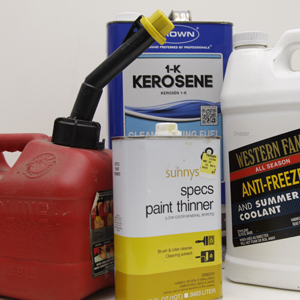 Household Hazardous Waste
Household Hazardous Waste
What is Hazardous Waste? Hazardous Waste is any substance that can potentially harm people, animals, or the environment through skin contact or ingestion. Common examples include oil-based paint, thinner, stains, cleaners, pesticides, herbicides, insecticides, fertilizers, turpentine, lye, and pool and spa chemicals.
Read the labels on products before you throw them away and look for warnings such as flammable, caustic, danger, hazardous, or poison. Wastes such as these need to be properly disposed of to protect our households and water quality.
The Flathead County Landfill provides a free collection service for Household Hazardous Waste on the third Saturday of every month. This service is by appointment only, so you don’t have to wait in line. Download a registration form here to safely dispose of your household hazardous waste at the next event.
They accept: oil-based paint, solvents, strippers, pool and spa chemicals, pesticides/herbicides, fertilizers, cleaners, and poisons. Please bring in original, clearly marked closed containers only. DO NOT MIX WASTES.
Business Hazardous Waste Disposal
Most businesses use at least some products that are considered hazardous waste. The Flathead County Landfill offers an annual Business Hazardous Waste Disposal event, typically in late spring each year. If your business generates or uses products with a warning label such as flammable, caustic, danger, hazardous or poison, call the landfill at 758-5910 to learn how to participate. While this program is not free, it offers significant reductions in rates by organizing joint collection dates while allowing you to easily meet your legal disposal requirements.
Proper disposal of business HHW is required and regulated by law. Regulations concerning the management of hazardous wastes are issued by and enforced by the Montana Department of Environmental Quality (DEQ) and the U.S. Environmental Protection Agency (EPA). These regulations apply to hazardous wastes from “cradle to grave.” In other words, you are responsible for the hazardous wastes you produce or use from the time they are generated until the time they are properly, legally disposed of. In addition, various local agencies (like the fire department or sewage treatment plant) may have requirements on how and where your hazardous materials are stored, used, and disposed of.
Learn more about Montana’s Hazardous Waste Program at http://deq.mt.gov/Land/hazwaste. Visit http://www.montana.edu/pollution-prevention/business.html for cost-saving tips and technical assistance services.
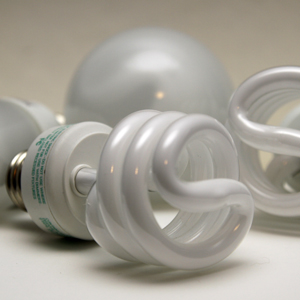 Fluorescent Bulbs
Fluorescent Bulbs
Mercury makes fluorescent lights work and cannot be eliminated from the lights completely. When mercury-containing products are placed in the household trash, the mercury may be released to the environment. Recycling fluorescents keeps mercury out of the environment and allows the mercury, glass, and metal to be reused.
Note: Businesses must comply with MT State Law when disposing of long tube fluorescent and HID lamps, ballasts, and thermostats. Disposal by residents in household trash is discouraged, but not currently prohibited. See below for safe local disposal options for CFLs. Find more information about CFL bulbs at http://deq.mt.gov/Land/recycle/real_question.
CFL Recycling:
- Home Depot: 2455 US Hwy 93 N, Kalispell, 755-5333, accepts CFLs only
- Lowe’s: 2360 US Hwy 93 N, Kalispell, 758-3030, accepts CFLs only
There are currently no local recycling options for fluorescent tubes. Click here for a list of mail-in programs and business options.
LED Bulbs
LED bulbs are even more energy efficient and last longer than CFL bulbs. There are currently no local recycling options for LED bulbs. Because they do not contain mercury, they are safe to place in your household trash.
Thermostats
Many thermostats used to control the room temperature in your home contain mercury. Consequently, these old thermostats should never be disposed of in the trash or local landfill. To assist homeowners with proper disposal of mercury-containing thermostats, a no-cost collection/recycling program is available to all Montana residents.
- Flathead County Landfill: 758-5910, notify them at the gate.
- Ferguson: 756-7630
- Dakota Supply Group: 752-1402
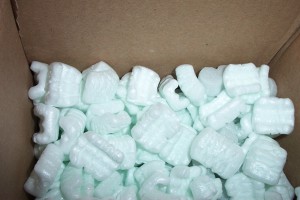 Bubble Wrap, Styrofoam, Packing Peanuts
Bubble Wrap, Styrofoam, Packing Peanuts
- The UPS Store: Kalispell, 755-8333; or Whitefish, 862-8300
- Kettle Care Organics: 257-6622
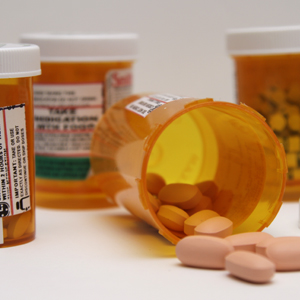 Proper disposal of unused medications can help prevent drug abuse in your neighborhood and protect the Flathead’s water quality. Flushing medications adds to pollution of our waters because wastewater and septic systems are not designed to treat these chemicals. Download a copy of our Pharmaceutical Waste Brochure.
Proper disposal of unused medications can help prevent drug abuse in your neighborhood and protect the Flathead’s water quality. Flushing medications adds to pollution of our waters because wastewater and septic systems are not designed to treat these chemicals. Download a copy of our Pharmaceutical Waste Brochure.
Instead of flushing or pouring down the drain, take unused medicines to secure drop boxes sites for safe disposal:
Kalispell
- Flathead County Justice Center Drop Box (920 Main St.) — Accessible 24/7.
- Walgreen Pharmacy (40 W Idaho St.) — Accessible 24/7.
- The Clinical Pharmacy (200 Conway Dr.)
- Family Health Care (1287 Burns Way)
- Sykes Pharmacy (202 2nd Ave W)
- Columbia Falls Police Station Drop Box (130 6th St. W) – 8am-6pm Monday through Friday
- Whitefish Police Station Drop Box (275 Flathead Ave.) – 8am-6pm Monday through Friday
- Alpine Apothecary (Inside Super 1)
- Dump medicines out of their container into a re-sealable bag
- Pour enough water into the bag to let medicines dissolve
- Add an absorbent such as kitty litter, coffee grounds, or sawdust and mix together
- Seal bag and place in a garbage container out of reach of children and pets.
Where to Recycle
Click here to download our How to Recycle in the Flathead Valley brochure!
Pharmaceutical Waste Disposal
Click here to download out How to Dispose of Pharmaceutical Waste in the Flathead brochure!
Public Drop-off Sites
Flathead County maintains free collection sites for residents to dispose of their recyclables. Click the markers for the address and which materials are collected at each recycling site.
Curbside Pickup
The Flathead Valley has multiple fee-based curbside recycling businesses. Contact the following businesses for prices and schedules:
Green Machines
Countywide pick-up service, home and business.
(406) 755-8112
www.valleygreenmachines.com
North Valley Refuse
Whitefish only service, home and business.
(406) 862-4381
www.republicservices.com/montana-waste-systems
Dirt Rich Compost Food Scrap Pick-up
Countywide pick-up service for food scraps
(406) 212-7535
www.dirtrichcompost.com/
Periodic Glass Recycling Events with Flathead Recon
The Flathead Recon Glass Recycling facility is closed until further notice. Recon is based on the idea that recyclables should be processed locally for higher and better uses. Citizens for a Better Flathead (CBF) continues to partner with Flathead Recon.
For Flathead Valley residents, it’s been difficult to find a way to recycle glass over the years because many places that once did it have either stopped or gone out of business. According to the EPA, only about 30 percent of glass in the United States is recycled every year. Flathead Recon owner Dave Fishlowitz purchased a glass pulverizer with the goal of diverting good materials from the landfill toward reuse, The Glass Pulverizer is on the shelf until it can find a new home .

